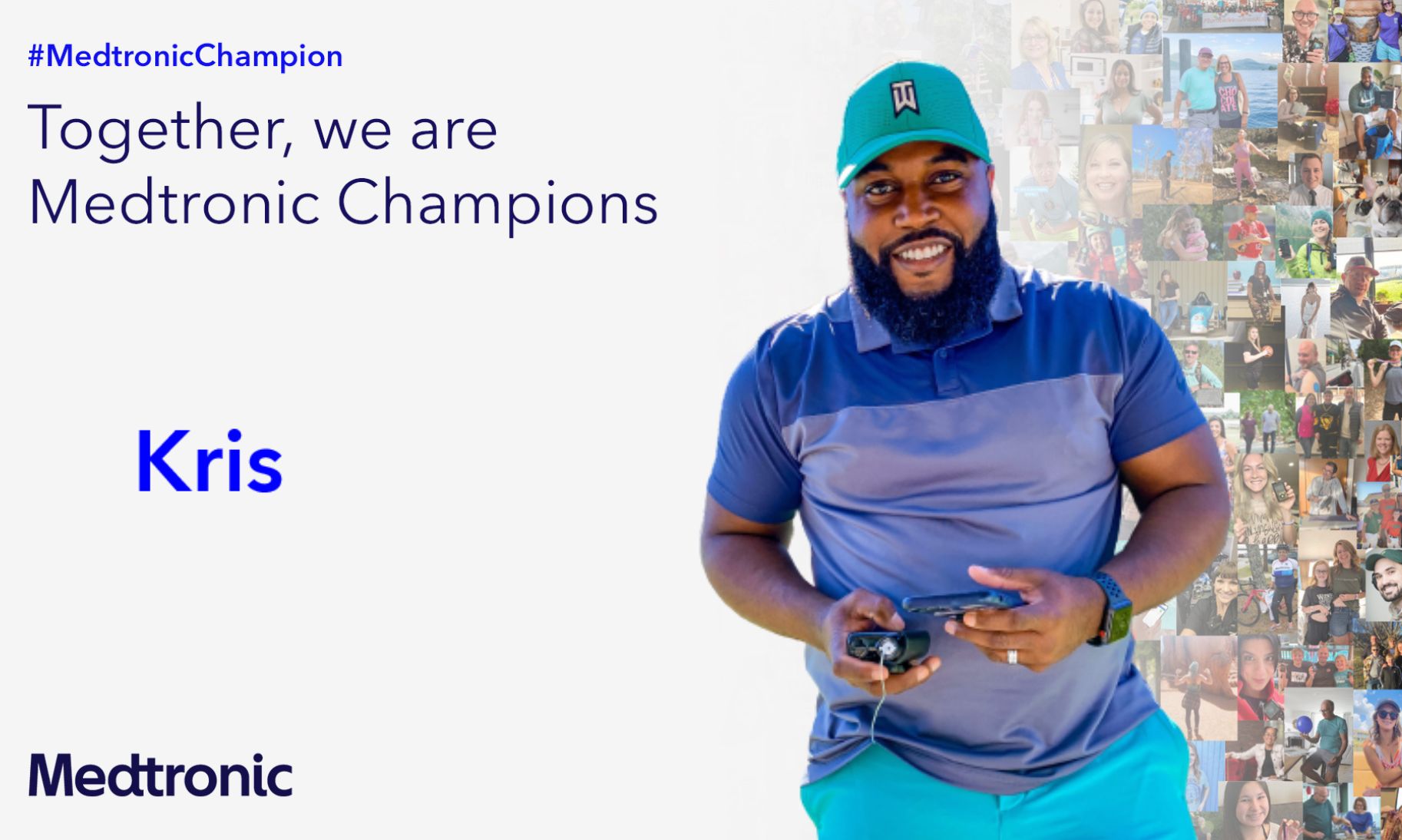Meet #MiniMedChampion Shaquana

Meet Shaquana, a MiniMed Champion living with diabetes in Brooklyn, New York along with her husband Ernest and their 11-year-old son, Allen, who was also diagnosed with type 1 diabetes in 2023.
The family enjoys traveling together and going on cruises in their free time, with a few of their favorite spots being Amber Cove in the Dominican Republic and Grand Turk Island. Here is her diabetes story:
From diagnosis to wakeup call
I was diagnosed with type 1 diabetes when I was nine. I was in foster care at the time, and my foster family took me in to be checked.
From 9 until 20 years old, I used insulin injections, but I kind of rebelled when I was about 18 — I was tired of sticking myself all the time. That’s when I got real sick.
I remember when I was younger and went into the hospital, the doctor said, “You’re going to have to take care of yourself, otherwise you’ll get sick. You’ll go blind. You’ll lose your limbs.” So I knew I had to start taking care of myself again. After I got married in 2000, I was able to get an insulin pump and I started using the MiniMed™ 530G system.
Experience with the MiniMed™ 780G system
Diabetes gets tiring. You’re constantly thinking about it, 24/7. Or at least, I was back then! But now, the pump does so much for you, thank God.
When I first got on the MiniMed™ 780G system, my sugar was about 80, but I had an arrow going down. I was getting ready to eat dinner, and the pump was like, “No, I’m not going to give you insulin because I see your sugar’s going down,” and I was like, “Oh! Well, excuseee me! It knows!” so that was a really fun thing to see.
A child with diabetes
Allen got diagnosed in 2023. We were on a cruise, and he had gone to the bathroom before me. You know young boys — they don’t always clean up after themselves! When I came in, I thought that his urine looked oily.
I said to my husband, “I think there’s sugar in his urine.” So when we got back, I took him straight to the doctor and told them he needed his A1C checked — it was 11.4.
She told us to take him to the hospital, where he stayed for a couple days and learned how to administer insulin himself. He was kind of scared at first. He was crying, but I told him, “Listen. If you don’t show them you know how to do it, you better get comfy because this is going to be your new residence.”
He looked at me like he didn’t believe me, but I said, “If you don’t take care of yourself, you’re going to keep ending up in the hospital. I know it’s hard, but I’m here with you, and we’ll do what you need to do.”

Tackling diabetes together
With diabetes, if you don’t do it right, your numbers will tell on you.
When I taught my son how to count carbs, I said, “Even if you don’t know anything else, you’re going to know math after this!”
I remember his doctor said, “You’re not playing!” and I was like, “It’s not a game!” I want him to start good habits now. I’m not always going to be around, so he has to know how to manage.
At school, they asked if I wanted a paraprofessional (in-school support for those who have a 504 plan) with him, but he said no, he didn’t want someone following him around — he wanted to do it himself. He’s really adjusted; he’ll tell me what his sugar is, especially at school.
He started on the InPen™ smart insulin pen and went to the MiniMed™ 780G system last year. It’s been so much easier for him! Before he was sticking himself [with insulin injections] four times a day and testing up to six times a day. Now it’s down to just when the pump asks him to put in his blood sugar. He loves it.
Being a MiniMed Champion
Everyone is here for you, answering your questions and providing support. Back in the day, I’m sure that kind of support was out there, but I was out of the loop. I didn’t have access. Ever since Allen got diagnosed, I wanted him to know more about it and be more involved, because I didn’t have that when I was his age. I was bouncing around from house to house in foster care, and never got the opportunity to meet people my age who were diabetics. For him, he gets the chance to see that he’s not alone. That’s what I told him when he was diagnosed: you’re not alone!
“I am a MiniMed Champion because I’m managing my type 1 diabetes and living for my son!”
The testimonial above relates an account of an individual’s experience using a Medtronic device. The account is genuine, typical, and documented. However, this individual’s experience does not provide any indication, guide, warranty or guarantee as to the response or experience other people may have using the device. The experience other individuals have with the device could be different. Experiences can and do vary. Please talk to your doctor about your condition and the risks and benefits of Medtronic devices.
Important Safety Information: MiniMed™ 780G System With SmartGuard™ Technology With Guardian™ 4 Sensor
The MiniMed™ 780G system is intended for continuous delivery of basal insulin at selectable rates, and the administration of insulin boluses at selectable amounts for the management of type 1 diabetes mellitus in persons seven years of age and older requiring insulin as well as for the continuous monitoring and trending of glucose levels in the fluid under the skin. The MiniMed™ 780G system includes SmartGuard™ technology, which can be programmed to automatically adjust insulin delivery based on the continuous glucose monitoring (CGM) sensor glucose values and can suspend delivery of insulin when the sensor glucose (SG) value falls below or is predicted to fall below predefined threshold values.
The Medtronic MiniMed™ 780G system consists of the following devices: MiniMed™ 780G insulin pump, the Guardian™ 4 transmitter, the Guardian™ 4 sensor, One-press serter, the Accu-Chek™ Guide Link blood glucose meter, and the Accu-Chek™ Guide test strips. The system requires a prescription from a healthcare professional.
The Guardian™ 4 sensor is intended for use with the MiniMed™ 780G system and the Guardian 4 transmitter to monitor glucose levels for the management of diabetes. The sensor is intended for single use and requires a prescription. The Guardian™ 4 sensor is indicated for up to seven days of continuous use.
The Guardian™ 4 sensor is not intended to be used directly to make therapy adjustments while the MiniMed™ 780G is operating in manual mode. All therapy adjustments in manual mode should be based on measurements obtained using a blood glucose meter and not on values provided by the Guardian™ 4 sensor. The Guardian™ 4 sensor has been studied and is approved for use in patients ages 7 years and older and in the arm insertion site only. Do not use the Guardian™ 4 sensor in the abdomen or other body sites including the buttocks, due to unknown or different performance that could result in hypoglycemia or hyperglycemia.
WARNING: Do not use the SmartGuard™ feature for people who require less than 8 units or more than 250 units of total daily insulin per day. A total daily dose of at least 8 units, but no more than 250 units, is required to operate in the SmartGuard™ feature. |



